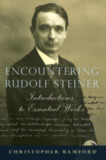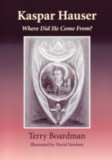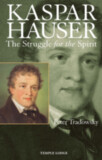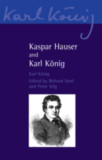Kaspar Hauser
And the Destiny of Middle Europe in the Nineteenth Century
- Publisher
Temple Lodge Publishing - ISBN 9781915776211
- Language English
- Pages 244 pp.
- Size 6" x 9"
Who was Kaspar Hauser and where did he come from? Why was his childhood spent in a prison cell? Was he related to nobility, royalty or even Napoleon, as some have suggested?
From his initial appearance on the streets of Nuremberg in 1828 to his disturbing murder only five years later, the enigmatic story of Kaspar Hauser has stirred feelings of love and admiration in countless people. He has been celebrated as the subject of films and plays, popular books and academic studies, yet even today—nearly two hundred years after his death—he continues to arouse opposition and hatred from his detractors, who dismiss him as an opportunist and a fraud.
In this first English-language edition of the classic text—the original, comprehensive attempt to illumine the mysterious life of Kaspar Hauser from a spiritual-scientific, anthroposophic perspective—historian Karl Heyer gathers the basic facts of the life and death of the “Child of Europe” and explores his remarkable abilities and character. With admirable clarity, he studies Hauser’s fate in connection with the mission and destiny of Central Europe, focusing mainly on the roles of the House of Baden and key political actors such as Napoleon and Otto von Bismarck. His original research leads to shocking conclusions that have significant consequences for Europe’s future.
Karl Heyer was initially drawn to the subject of Kaspar Hauser through a private conversation with Rudolf Steiner. That seed matured forty years later as intensive research and the first publication of this book in German in 1958. “For me,” says Heyer, “it represented the high point of my writing and a kind of crowning of my life’s work.”
C O N T E N T S:
Karl Heyer and his Kaspar Hauser Work—
Foreword to the 4th Edition by Thomas Meyer
Foreword by Karl Heyer
1. The Being of Kaspar Hauser and His Appearance in the 19th Century
2. The Destiny of Kaspar Hauser and the Destiny of Middle Europe
Conclusion
Notes
Index of Names
Karl Heyer
Karl Heyer (1888–1964), lawyer and historian, was one of the foremost students of Rudolf Steiner. Born inHanau (Hesse), he studied law in Kassel. In 1911, he heard a lecture by Rudolf Steiner and began an intensive study of history and philosophy, attaining his PhD in 1917. Heyer worked in the movement forsocial threefolding, gave lectures and wrote essays and many books, including the nine-volume work Beiträge zur Geschichte des Abendlandes (Contributions to the history of the West), which includes his book, Kaspar Hauser.








